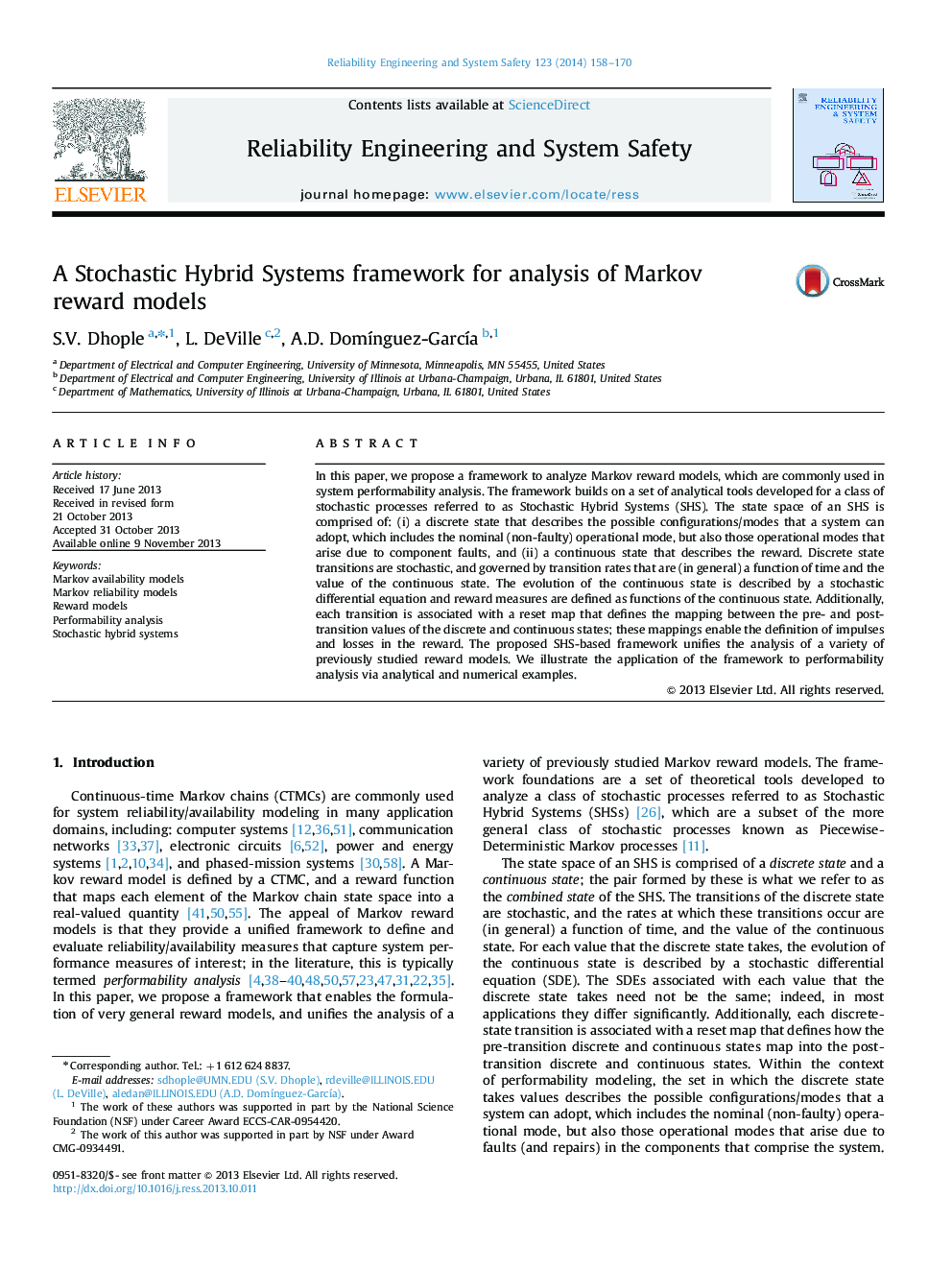| Article ID | Journal | Published Year | Pages | File Type |
|---|---|---|---|---|
| 806816 | Reliability Engineering & System Safety | 2014 | 13 Pages |
In this paper, we propose a framework to analyze Markov reward models, which are commonly used in system performability analysis. The framework builds on a set of analytical tools developed for a class of stochastic processes referred to as Stochastic Hybrid Systems (SHS). The state space of an SHS is comprised of: (i) a discrete state that describes the possible configurations/modes that a system can adopt, which includes the nominal (non-faulty) operational mode, but also those operational modes that arise due to component faults, and (ii) a continuous state that describes the reward. Discrete state transitions are stochastic, and governed by transition rates that are (in general) a function of time and the value of the continuous state. The evolution of the continuous state is described by a stochastic differential equation and reward measures are defined as functions of the continuous state. Additionally, each transition is associated with a reset map that defines the mapping between the pre- and post-transition values of the discrete and continuous states; these mappings enable the definition of impulses and losses in the reward. The proposed SHS-based framework unifies the analysis of a variety of previously studied reward models. We illustrate the application of the framework to performability analysis via analytical and numerical examples.
